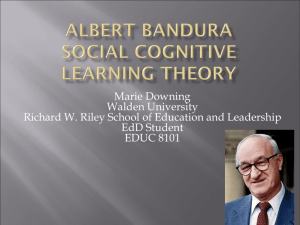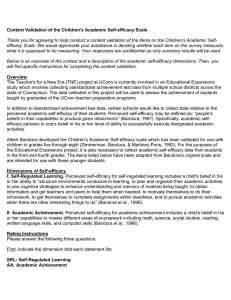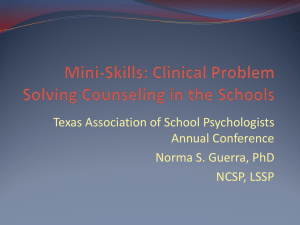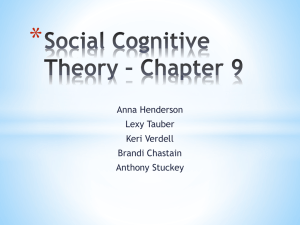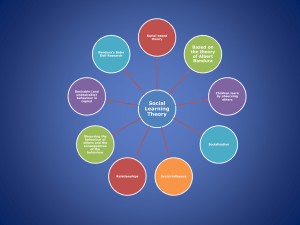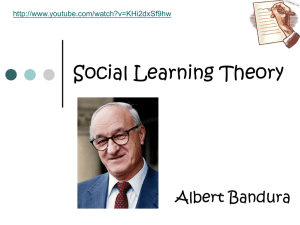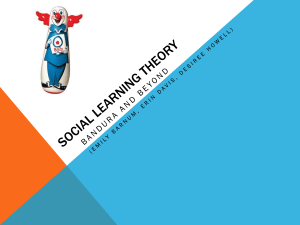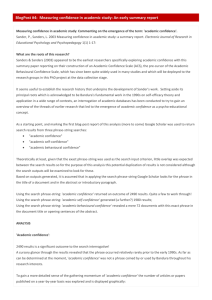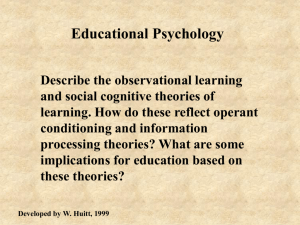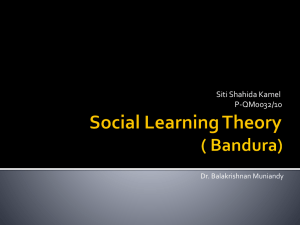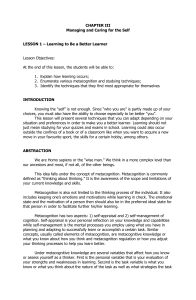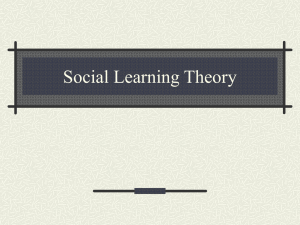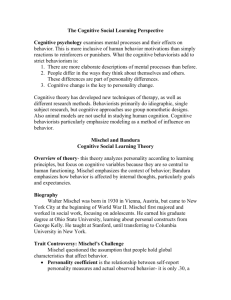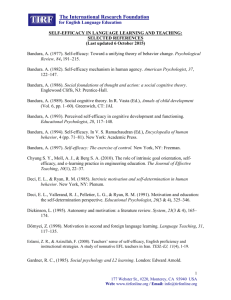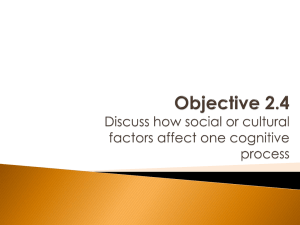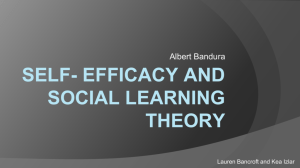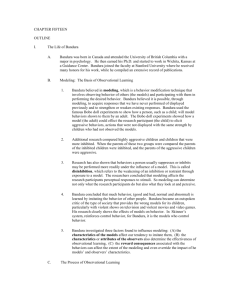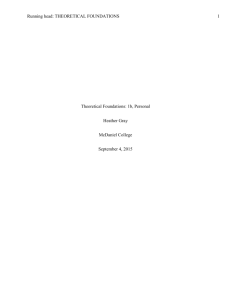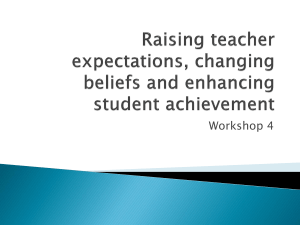Albert Bandura
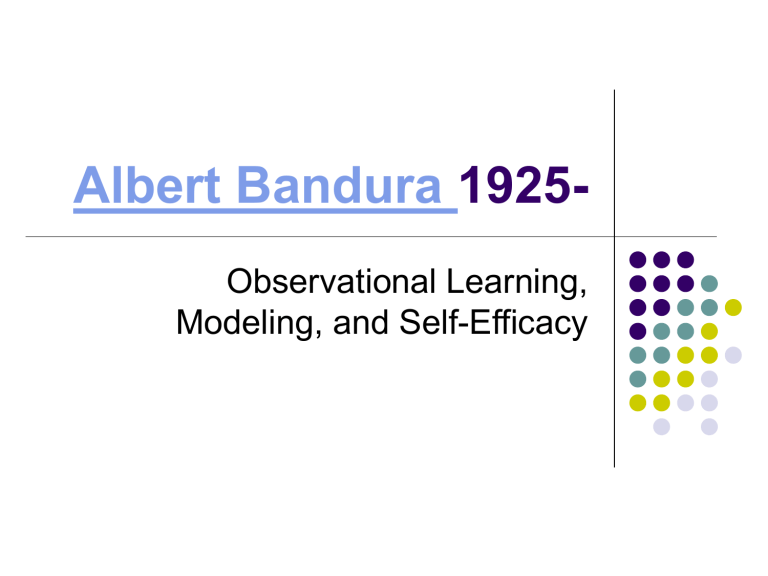
Albert Bandura 1925-
Observational Learning,
Modeling, and Self-Efficacy
An excellent biography page
Here is an excellent page presenting
Bandura's life and work with pictures etc.
One could say that Bandura took up where
Skinner left off, moving the principles of behaviorism to a new ground, asking more sophisticated questions.
Sorry, the child grew old and died before s/he happened upon the behavior we wanted to reinforce
Bandura agrees that reinforcers help the behavior grow stronger. But some behaviors are very unlikely. Why do we choose to behave in certain ways?
A very powerful influence is observation. We see others performing some behavior that appears to be successful, and we imitate. This is modeling.
Through modeling we produce unlikely, or difficult behaviors we would never just learn on our own.
What behaviors are likely to be imitated?
Behaviors that seem successful, status giving, or fun. Also behaviors one sees rewarded.
Some behaviors that would otherwise be unacceptable to us may also become acceptable… probably because the model performed them, so they become possibilities.
Hence, violent behavior on TV for example may easily be imitated by people who did not, in the past, engage in such behaviors (see Bobo studies) --this is what Bandura calls disinhibition
Who do we tend to imitate?
People who resemble us (in age, gender, ethnicity, role etc..)
People who appear to be of higher status, or who hold higher prestige
People who seem successful in their actions
Who is more prone to imitate someone else?
Someone who is low in self-confidence, insecure in the situation at hand.
Someone who has been reinforced for imitating.
Our responsibility as a society
Much behavior —good and bad, normal and abnormal —is learned by imitating the behavior of other people.
It is irresponsible to provide violent, exploitive, immoral models through the media, especially for those programs children watch.
Note though that the modeling effect is true for adults also. We have a tendency to become what we watch.
Who is it that rewards or punishes our actions?
Sometimes it is your professor, your parent, the judge etc.
Much of the time however it is yourself
Meeting your own expectations or standards is rewarding
Breaking your own standards is painful and punishing
Isn't it true that sometimes though we know God has forgiven us, we cannot forgive ourselves?
Our capability at self-reinforcement is a very powerful force in the management of our own behavior.
When we feel we are managing our lives well
We are experiencing a sense of satisfaction and control that Bandura calls self-efficacy
Self-efficacy involves
Meeting our own expectations relatively well
Perceiving a connection between our efforts and the outcomes we get.
Having the sense that we will be able to meet future challenges
Bandura's definition of selfefficacity
Here is Bandura's definition : " Perceived selfefficacy is defined as people's beliefs about their capabilities to produce designated levels of performance that exercise influence over events that affect their lives. Self-efficacy beliefs determine how people feel, think, motivate themselves and behave. Such beliefs produce these diverse effects through four major processes. They include cognitive, motivational, affective and selection processes."
How does one acquire a strong sense of self-efficacy?
Through the experience in overcoming obstacles through perseverant effort (most important)
Through seeing people similar to oneself succeed by sustained effort
Through strengthening one's beliefs that one has what it takes to succeed
Through reducing one's stress reactions and altering one's negative emotional tendencies
An interesting technique: covert modeling
Afraid to give a classroom presentation?
Intimidated by a big project or paper? Helpless before the task of organizing your apartment?
Imagine someone who is very proficient at this task.
Then imitate that person.
(Note: this is similar to Kelly's role playing, is it not?)
Where might we improve our self-efficacy?
What is one area, in your opinion, where Bethel students often lack self efficacy?
Define the area, and explain it. What problems could this lack of self-efficacy create in the life of a student? What behavior patterns does it lead to?
Imagine you are Bandura, and you are working with a student manifesting the problems you just described. What suggestions would you have to improve this student's self-efficacy? What experiences might be helpful etc.?
The end
